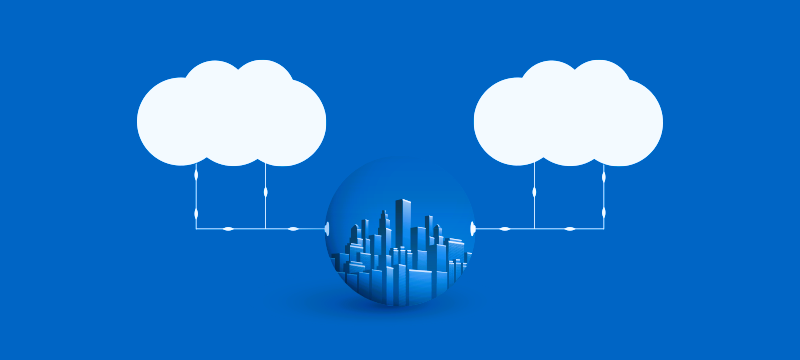In the ever-evolving landscape of technology, businesses are increasingly turning to cloud services to streamline their operations, enhance collaboration, and improve overall efficiency. The cloud offers a plethora of services, each tailored to meet specific business needs. Navigating this complex ecosystem, however, can be a daunting task. In this article, we will explore the factors businesses should consider when choosing a cloud service and how this decision can significantly impact their operations.
Understanding Cloud Services
Cloud services encompass a wide range of offerings, including Infrastructure as a Service (IaaS), Platform as a Service (PaaS), and Software as a Service (SaaS). IaaS provides virtualized computing resources over the internet, allowing businesses to rent virtual machines, storage, and networks. PaaS provides a platform allowing developers to build, deploy, and scale applications without managing the underlying infrastructure. SaaS, on the other hand, delivers software applications over the internet, eliminating the need for users to install, maintain, and update the software locally.
Factors to Consider

1. Scalability:
One of the primary advantages of cloud services is scalability. Businesses should assess their current and future needs to ensure that the chosen service can seamlessly scale with growing demands. Scalability is crucial for accommodating fluctuations in workload and avoiding disruptions during peak times.
2. Security:
Security is a paramount concern when entrusting data to a third-party provider. Businesses should evaluate the security measures implemented by cloud service providers, including data encryption, access controls, and compliance certifications. Regular security audits and updates are essential to safeguard sensitive information. Read our article about a deep dive into machine learning algorithms and applications.
3. Cost Considerations:
While the cloud offers flexibility, it’s essential to manage costs effectively. Understanding the pricing models of different cloud providers and selecting the one that aligns with the business’s budget is crucial. Hidden costs, such as data transfer and storage fees, should be thoroughly examined.
4. Performance and Reliability:
The performance and reliability of a cloud service are critical for uninterrupted business operations. Service Level Agreements (SLAs) should be carefully reviewed to understand the guaranteed uptime and the provider’s commitment to service reliability. Downtime can have significant implications for a business, so choosing a reliable provider is paramount.
5. Integration Capabilities:
Compatibility with existing systems and applications is crucial. Businesses should choose a cloud service that seamlessly integrates with their current infrastructure. APIs (Application Programming Interfaces) play a vital role in enabling smooth communication between different systems.
6. Data Location and Compliance:
Understanding where data is stored and ensuring compliance with data protection regulations is essential. Some industries have specific compliance requirements, such as healthcare (HIPAA) or finance (PCI DSS). Cloud providers should adhere to these regulations to avoid legal complications.
7. Support and Service Level Agreements (SLAs):
Adequate support is crucial when adopting cloud services. Examining the support options offered by providers and the terms outlined in SLAs is essential. Clear communication channels, response times, and resolution procedures should be established to address potential issues promptly.
Popular Cloud Service Providers

- Amazon Web Services (AWS): As one of the largest and most comprehensive cloud platforms, AWS offers a wide array of services, including computing power, storage, databases, machine learning, and more.
- Microsoft Azure: Azure provides a robust cloud platform with a focus on integration, offering services such as virtual machines, databases, AI, and IoT solutions. It is known for its seamless integration with Microsoft products.
- Google Cloud Platform (GCP): GCP is recognized for its data analytics and machine learning capabilities. It provides services like computing, storage, big data, and machine learning, along with a strong emphasis on data analytics.
- IBM Cloud: IBM Cloud offers a hybrid cloud approach, combining public and private cloud solutions. It is often chosen by enterprises with specific regulatory or compliance requirements.
Conclusion
In conclusion, selecting the right cloud service is a crucial decision that significantly influences a business’s efficiency, security, and overall success. By considering factors such as scalability, security, cost, performance, integration capabilities, data location, and support, businesses can make informed decisions that align with their specific needs.
As technology continues to advance, staying informed about the latest developments and best practices in cloud computing is essential. For more information on cloud service standards and industry best practices, you can refer to the Wikipedia page on Cloud Computing. This valuable resource provides an in-depth overview of cloud computing concepts, technologies, and the evolving landscape of cloud services.
